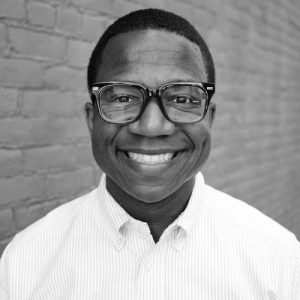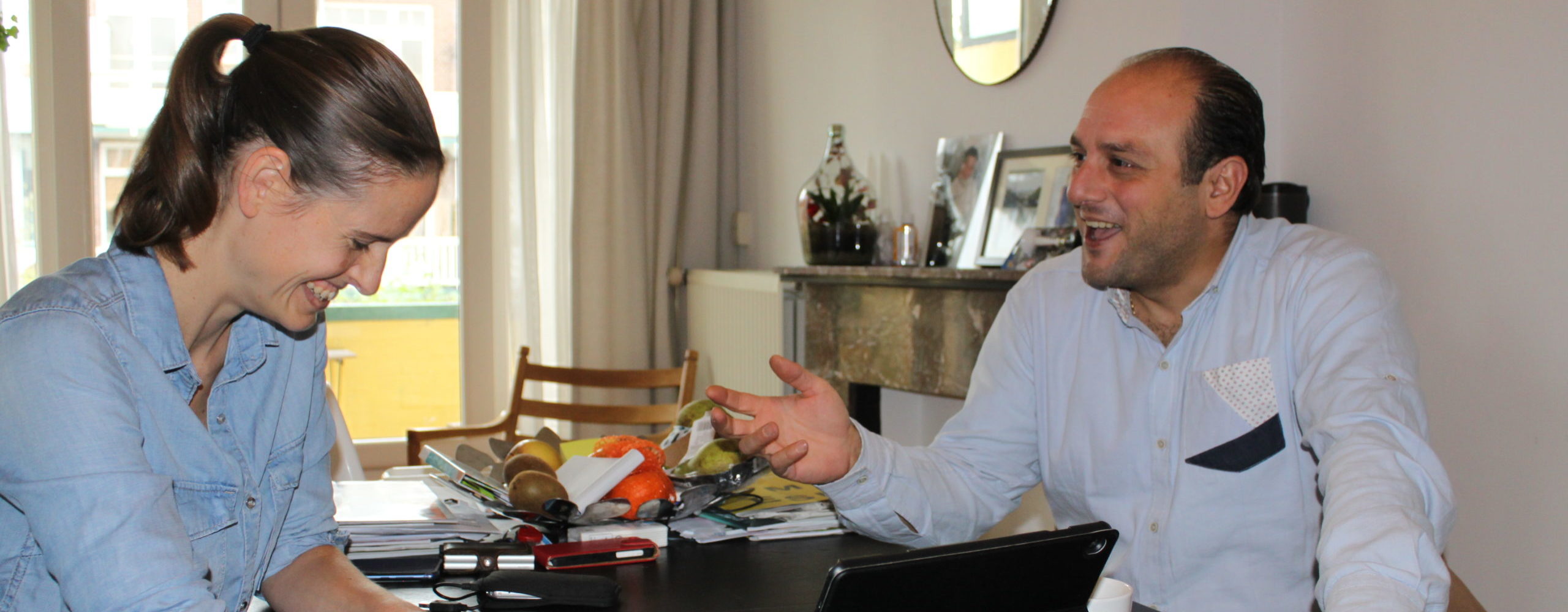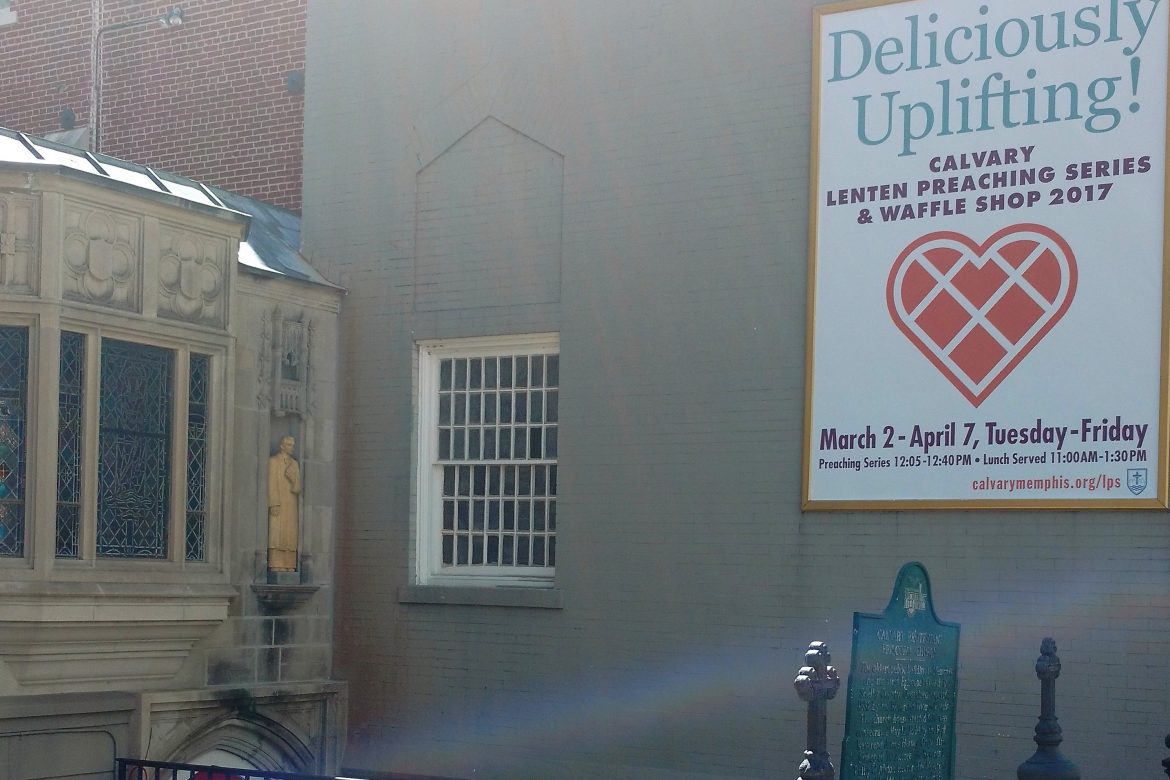He has 30k followers on Twitter, his own video and podcast series, and he writes about religion, race and sexuality for The Washington Post and The Guardian. Broderick L. Greer is one Reverend that doesn’t shy away from the public debate. I went to hear him preach twice at two different churches before we sat down for an interview at City and State in Memphis’ Midtown the day after Martin Luther King Jr. Day. I wanted to find out what had motivated this young Reverend to follow a career path in religion and what he thinks the core tasks are for the church in the 21st century.

How important is the Internet as a medium in the religious community?
The church should always be in conversation with the world and increasingly that conversation is taking place online. We can’t retreat from the world, it’s the only one we have. We need to be where people assemble. Religious television stations emerged in the 1990s when priests started thinking about how to communicate the church’s message in different ways. Now we use new means, such as social media, blogs and podcasts, to share God’s good news.
I heard you speak about the “moral authority of those with frail bodies” during your Lenten Preaching sermon at Calvary Episcopal Church in downtown Memphis. You referred to civil rights activist John Lewis, among others, as an example of how one can ultimately prevail over those in positions of power. Why did you choose to talk about this topic?
The Bible is full of stories about unlikely heroes. Just think about David defeating Goliath or the Hebrew midwives refusing the Pharaoh’s order to kill all male babies. Essentially, the threat – and therefore strength – of moral authority is that the frail, yet risen body of Jesus is a living antagonization of the powers that be. And we all are, if we take our baptism seriously. This is an important theme in Christianity and it reminds us that it is our duty as people of faith to care for the weak and poor.
You regularly voice your opinion on U.S. politics through online channels. Do you believe there’s moral authority in the “America First”-strategy of the Trump administration?
There are many, among them most Evangelical Christians, who have no issue with Donald Trump. Who find his policies consistent with their beliefs. Their ideas of God are generally defined by their social status. They are of the opinion that the rich and poor deserve what they have and they find scriptures to back that up. That’s where they part ways with more progressive Christians who believe the church should have preference for people who are ignored and disenfranchised. We should be faithful to people in the same social situation as Jesus who was illiterate and living in occupied territory.
Every year, the Calvary Episcopal Church in Memphis organizes the Lenten Preaching Series, inviting preachers from around the country to come and speak. Reverend Greer’s sermon focused on the “moral authority of those with frail bodies” and how that remains ever so relevant in today’s world.
The black church in Fort Worth, Texas, where you grew up, must have been very different from your world now at the Grace-St. Luke’s Episcopal Church and School in Memphis. Why did you make this transition?
The black church in Fort Worth introduced me to the importance of performance, of celebrating faith through song, music and dance. These services were very mind-focused. When I was sixteen, I started preaching at the Church of God in Christ. In my senior year in high school I even filled in for the acting pastor of a small church in Hurst, Texas for a few weeks. I moved to Henderson, Tennessee to attend college and soon realized that I wanted to practice my faith in a more tangible way. I longed for a physical experience of God. Of something that went beyond my brain. The Episcopal Church provided that. I was confirmed in 2010 and started teaching at Saint Luke’s in Jackson, Tennessee. In 2015 I graduated from the Virginia Theological Seminary, the largest Episcopal school in the United States.
So you were leading services at a very young age. When did it click that this is what you wanted to do for the rest of your life?
During my first year of college I interned at a church in West Texas. I lead my first funeral there and visited newborns and seriously ill people in hospital. It was through these intimate interactions that I realized my vocation was true. As a kid I liked the attention of people listening to my stories. In West Texas I understood that was an egocentric-type impulse. True ministry is both preaching for hundreds at Sunday service and having a quiet pastoral conversation with a congregation member. The big and small inform each other.
Your oratory technique is sometimes described as preaching without sounding “preachy”. Is this a consciously crafted style or does it simply come natural to you?
From a young age I’ve had a rich biblical and cultural imagination. I always strive to incorporate both in my preaching without being too opinionated. Rather, I build on the text. Being part of the worldwide Anglican Communion, the liturgy is always the focal point of the service. However, that doesn’t mean your words can’t be poetic or your execution rhetorically flourishing. By the way, I’m always critical of what I’ve put on paper. Sometimes I worry I’m too wordy. I never feel “great” after a sermon. Nonetheless, it’s something I enjoy doing and I enjoy improving myself further.
The Episcopal Church is among the most progressive Christian denominations. Would you describe yourself as a religiously liberal Reverend?
I’m hesitant to say I am. I believe in the Trinity, the importance of bishops and the reconciliation of Anglicans with Roman Catholics. So I’m very traditional when it comes to language and traditions. One scholar coined the term “generous orthodoxy” and I think that describes my position best. I’m orthodox when it comes to matters that are central to the faith, but more flexible about “peripheral” things, such as sexuality, gender and race. There is room to be generous because our core is so strong. God loves the whole world. That’s what matters. Anything beyond that is up for debate. And I participate in that debate with conviction.
In 2015, Reverend Greer was interviewed at Grace-St. Luke’s by a reporter from the Public Broadcasting Service (PBS). They spoke about how Rev. Greer – an openly gay clergyman – “uses his unique perspective to bring two long-estranged communities – the church and the LGBTQ community – closer together.”








